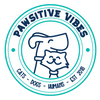Your cart is empty
Looks like you haven't added anything to your cart yet
CHOOSING THE BEST DOG FOOD: THE ULTIMATE GUIDE

With so many options available, finding the right dog food can be downright overwhelming!
But don’t worry, we've done the research for you. This guide will cover everything from understanding your dog's dietary needs to decoding the ingredient list on dog food labels.
In this Article:
Why is good dog nutrition important? Types of dog food - dry, wet, raw, and homemade Reading dog food labels - what to look for and what to avoid Common dog food ingredients to be aware of Considerations for puppies, adult dogs, and senior dogs Choosing the best dog food brand for your fur child Transitioning to a new dog food brand or type Supplements and additional nutrition for dogs Conclusion: Providing optimal health and nutrition for your dog
Why is good dog nutrition important?
Just like humans, dogs need a balanced diet to give them the necessary nutrients to thrive. A well-nourished dog will have a shiny coat, strong muscles, and a healthy immune system.
When it comes to dog food, not all brands are created equal. Some may contain fillers and artificial ingredients that offer little nutritional value (!). That's why it's so important to choose a high-quality dog food that meets your dog's specific nutritional needs.
Types of dog food - dry, wet, raw, and homemade
There are many types of dog food available in the market, each with its own merits. These are the most common:
-
Dry dog food, also known as kibble, is the most common type. It is convenient, has a long shelf life, and may help keep your dog's teeth clean.
-
Wet dog food is found in cans or pouches and has more liquid, making it “wet”. It can be easier for your dog to eat and contains more protein than dry dog food.
-
Raw dog food has gained popularity in recent years. It is based on the concept of feeding dogs a diet that is similar to what their ancestors ate in the wild. Proponents of raw dog food claim that it can improve their dog's coat, digestion, and overall health. Raw food can be tricky to manage as it requires proper handling and may not be suitable for all dogs.
-
Raw-coated kibble is kibble wrapped in a freeze-dried coating of raw meat. It offers convenience as well as raw elements.
- Homemade dog food is made by dog parents at home. This allows them to have complete control over the ingredients and ensure that their dog is getting the best nutrition possible. However, it's important to consult with a vet or canine nutritionist to make sure that the homemade diet is balanced and meets all your dog's nutritional needs.
Reading dog food labels - what to look for and what to avoid
Decoding the ingredient list on dog food labels can be a daunting task. Manufacturers like to use complicated terminology and misleading marketing tactics to make their products seem more appealing. However, with a little knowledge, you can make an informed decision about the best dog food for your furry child.
When reading dog food labels, the first thing to look for is a named animal protein source as the first ingredient. This could be chicken, beef, or fish. Avoid products that list generic terms like "meat" or "poultry meal" as the primary protein source.
Next, check for whole food ingredients like fruits and vegetables. These provide important vitamins, minerals, and antioxidants that support your dog's overall health. Avoid dog foods that contain artificial colors, flavors, and preservatives, as these additives can have negative effects on your dog's health.
Finally, guaranteed analysis will give you additional clues about the percentages of protein, fat, fiber, and key nutrients in dog food.
Common dog food ingredients to be aware of
While most dog food ingredients are safe and nutritious, there are a few that you should be aware of. Some dogs have allergies or sensitivities to certain ingredients, so it is important to identify and avoid them.
Common allergens in dog food include grains like wheat, corn, and soy. If your dog has a grain allergy, look for grain-free dog food options that use alternative carbohydrate sources like sweet potatoes or peas. Other potential allergens include dairy, eggs, and certain types of meat.
In addition to potential allergens, some human foods can be extremely toxic to your dog. Here are the most common, according to the ASPCA:
- Alchohol
- Chocolate
- Coffee & Caffeine based products
- Grapes & Raisins
- Macadamia Nuts
- Onions, Garlic, Chives
- Raw/Undercooked Meat, Eggs and Bones
- Xylitol
- Yeast

Considerations for puppies, adult dogs, and senior dogs
Every dog is unique and has specific nutritional needs. Factors such as age, breed, size, and activity level can all affect the type and amount of food your dog requires. These are other key factors to consider when choosing the best dog food for your pet. Puppies, adult dogs and senior dogs all have different nutritional needs than adult dogs.
For puppies, look for dog food that is labeled as "complete and balanced" for growth. These formulas are specially designed to support the rapid growth and development of young dogs. They contain higher levels of protein, fat, and essential nutrients like calcium and phosphorus.
Adult dogs, on the other hand, require a diet that maintains their overall health and provides them with the energy they need. Look for dog food labeled as "complete and balanced" for adult maintenance. These formulas typically contain moderate levels of protein, fat, and carbohydrates.
Senior dogs have unique nutritional needs due to age-related changes in their bodies. Look for dog food labeled as "complete and balanced" for senior dogs. These formulas often contain lower levels of fat and calories to prevent weight gain, as well as added nutrients like glucosamine and chondroitin to support joint health.
Breed-specific nutritional needs should also be considered. Large breeds, such as Great Danes or Saint Bernards, may benefit from a diet that supports joint health, while small breeds, like Chihuahuas or French Bulldogs, may require smaller kibble sizes to prevent choking.
Choosing the best dog food brand for your fur child
Now that you understand your dog's specific nutritional needs, it's time to choose the best dog food brand. With so many options available, it can be overwhelming. However, there are a few key components to consider that can help you make an informed decision.
First, choose a reputable brand that has a history of producing high-quality dog food. Look for brands that have undergone rigorous testing and meet industry standards for safety and quality. It's also a good idea to consult with your veterinarian and fellow dog parents for recommendations.
Consider your dog's specific needs when choosing a dog food brand. Some brands offer formulas that are tailored to certain breeds, sizes, or health conditions. For example, there are dog food brands that specialize in providing nutrition for dogs with sensitive stomachs or skin allergies.
Selecting a brand may not be a consideration if you choose to make home-made meals for your dog. In this scenario, be sure to include the right mix of ingredients to provide the needed nutrients. Consult with your veterinarian or a veterinary nutritionist to create a well-balanced diet.
Lastly, consider your budget when choosing dog food. While high-quality dog food may be more expensive, it is an investment in your dog's health and can help prevent costly vet bills down the line. If you are on a tight budget, look for affordable options that still meet your dog's nutritional needs.
Once you have become more comfortable with all the possibilities, you can then consider mixing options. For example, you could feed your dog kibble and top it with freeze-dried raw or raw food. Even if you are only adding a topper, remember to transition gradually to avoid digestive issues.
Transitioning to a new dog food brand or type
When switching your dog to a new dog food brand or type, do so gradually to prevent digestive upset. Abruptly changing your dog's diet can cause diarrhea, vomiting, and other gastrointestinal issues. To transition your dog to a new food, follow these steps:
Start by mixing a small amount of the new food with your dog's current food. Gradually increase the ratio of new food to old food over 7-10 days (about 1 and a half weeks).
Observe your dog for any signs of digestive upset during the transition. If your dog experiences diarrhea or vomiting, slow down the transition process and give their digestive system more time to adjust.
Remember, every dog is different, and some may require a longer transition period than others. Be patient and monitor your dog's response to the new food closely.
Supplements and additional nutrition for dogs
In addition to a balanced diet, some dogs may benefit from supplements and additional nutrition. Before adding any supplements to your dog's diet, consult with your veterinarian. They can assess your dog's specific needs and recommend the appropriate supplements, if necessary.
Common supplements for dogs include omega-3 fatty acids, which can support skin and coat health, as well as joint supplements like glucosamine and chondroitin, which can help prevent or manage arthritis. Probiotics and digestive enzymes are also popular supplements that can support gut health and digestion.
Supplements should never be used as a substitute for a balanced diet. They should only be used to complement your dog's nutrition and address specific health concerns.
Conclusion: Providing optimal health and nutrition for your dog
Choosing the best dog food for your furry friend is a crucial decision that can have a significant impact on their overall health and well-being. By understanding your dog's specific nutritional needs and making informed choices, you can ensure that they receive the optimal nutrition they deserve.
Remember to consider factors such as age, breed, and any health conditions your dog may have when choosing a dog food brand. Read the ingredient list carefully and avoid products that contain fillers, artificial ingredients, and potential allergens.
If you decide to switch your dog to a new food, do so gradually to prevent digestive upset. And don't forget to consult with your veterinarian about any supplements or additional nutrition your dog may need.
With the right knowledge and a little bit of research, you can provide your beloved four-legged companion with the nourishment they need to thrive. Your dog will thank you with a wagging tail, a healthy coat, and a lifetime of happiness.
Every dog is unique, and their nutritional needs can vary based on their age, breed, and health conditions, so please check with your vet if your dog has specific health concerns.
- Choosing a selection results in a full page refresh.
